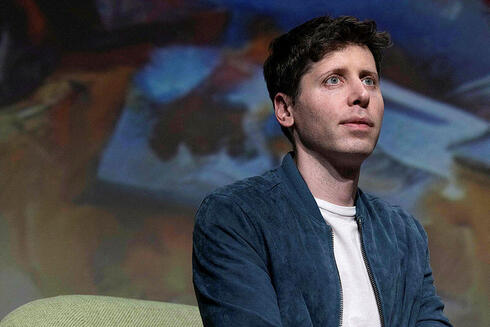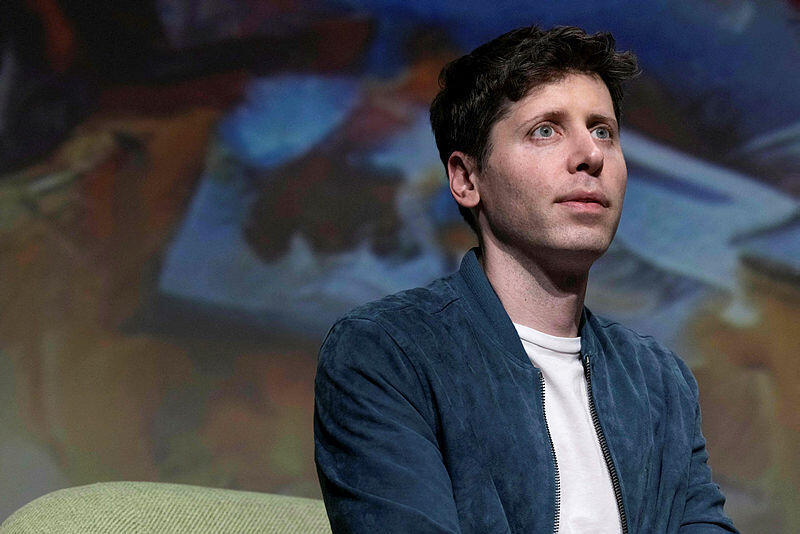
Worldcoin's Orwellian agenda: Iris identification and the erosion of personal freedom
Brave new world or dystopian nightmare? A closer look at Worldcoin's invasive tactics
Sam Altman, the CEO of OpenAI, the maker of ChatGPT, is currently dividing his time between raising concerns about the existential dangers of artificial intelligence and launching a global biometric database project. Last week, he introduced the cryptocurrency of the Tools for Humanity project, which he co-founded three years ago with CEO Alex Blania, with the aim of creating "the world's largest, most inclusive identity and financial public utility." However, the market seems unimpressed, as fears of exploitation and privacy issues rise. The British and American regulators are already scrutinizing the company's activities.
Last week, 143 million coins named Worldcoin started trading on several crypto exchanges. After reaching a peak of over $3, the coin's value dropped to $2.5, resulting in a total market value of $250 million. However, this value is misleading because the company actually minted 10 billion coins but only released a fraction of the supply, equivalent to 1.43%. While some projects release only a portion of their minted coins, the rate at which this project released its coins is unusually low, leading to a distorted market value of Tools for Humanity (allegedly $25 billion if the entire supply is considered), especially since the currency lacks substantial utility. Furthermore, the project reveals that 9.8% of the coin supply remains with the company's ten permanent employees, and 13.5% was allocated to investors, who are prohibited from selling their coins in the coming year.
Of the distributed coins, 43 million were given to the company's first 2 million registrants, recruited from approximately 30 countries over the past two years. An additional 100 million coins were loaned to market makers outside the U.S. for three months. At the end of this period, they can either purchase the tokens for $2 each or repay the loan, creating an incentive for market makers to maintain the currency's liquidity and stabilize its price above $2.
The project's unique ecosystem involves receiving the coin in a dedicated digital wallet through a specialized application called "World App." To acquire the coin, users must undergo iris identification through a technology developed by the company called "Orb," an optical scanner that resembles a metallic ball. This scan is currently available in 35 cities across various countries. The Orb operators, independent contractor workers who act as retina scanners, facilitate this process.
Regarding the privacy aspect, the company claims that although they train the Orb operators, they have no control over them and disclaim responsibility for their actions. Users receive the currency in exchange for their unique iris identification, ensuring a distinction between humans and AI.
The ultimate goal of the project is not only to distinguish between humans and AI but also to "enable global democratic processes" and potentially pave the way for universal basic income funded by artificial intelligence. However, the exact integration of the project with UBI remains unclear as the company has not elaborated on it in the published white paper. The company plans to generate profit through commissions and an increase in the currency's price, which will be linked to the provision of various services, although the specifics of these services have not been disclosed.
The project has faced criticism for focusing on obtaining biometric information from vulnerable populations and neglecting the crypto community. It has also been accused of being disconnected from cultural sensitivities and exhibiting activities reminiscent of colonialist history. For example, the company collected biometric data in countries like Kenya, where such data transfer is prohibited, and Zimbabwe, where banks are barred from dealing with crypto.
Despite the criticisms, the project has attracted major investors, including a16z, Coinbase Ventures, LinkedIn founder Reid Hoffman, and Sam Bankman-Fried. These investors valued the project at one billion dollars in 2021, and this past May the company raised an additional $100 million at a valuation of $3 billion.
Until the recent coin launch, the company has been working on identifying people's irises worldwide. Between May 2021 and July 2023, approximately 2 million people verified their identity and received varying amounts of company currency (though the currency was not tradable during this period, so its value on the free market was unknown).
Privacy concerns persist, and the company claims it intends to delete the collected iris images eventually, but that only scratches the surface of the ethical dilemmas posed by Worldcoin’s audacious endeavor.















